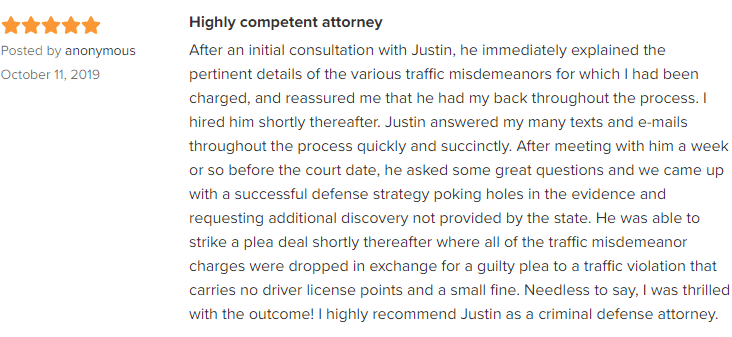Justin Eisele is licensed to practice in Arkansas and has been practicing Arkansas law for 13 years. He handles post-convictions in Arkansas and Maryland. Arkansas post-conviction remedies are generally covered by Rule 37 petitions in Arkansas.
Table of Contents
Arkansas Rule 37 Petitions have Strict Deadlines!
There are some very important things to remember when dealing with R. 37 petitions. The first hurdle is to make sure you get the petition filed timely. If you do not appeal your case, you must file the petition within 90 days of your conviction. If you did appeal, you have 60 days from the time your case was affirmed on appeal. Arkansas courts are not forgiving on these deadlines. If you miss a deadline, in almost every situation, your Arkansas Rule 37 Petition will be dismissed.
Retaining Counsel is Critical to Success in your Arkansas Rule 37 Petition.
Even if you do not hire our firm, it is highly recommended that you acquire counsel to handle your R. 37 petition. Justin, our Arkansas Rule 37 attorney, has seen many cases where pro se (self-represented) petitions are dismissed. This is not for lack of training but Rule 37 arguments can be very complex, and require technical expertise. Also, unlike in other states, it is much harder to be appointed representation in a Rule 37 petition (post-conviction). But, if you can’t afford counsel you can request that an attorney be appointed. Ark. R. Crim. P. 37.3(b).
It is Critical That You Find a Way to Get a Hearing on Your Arkansas Rule 37.

Justin Eisele once handled an appeal for a client who was denied a hearing on his Rule 37 petition. On appeal, we argued that even if the client might eventually be denied his claim, he should be afforded a hearing because evidence needed to be taken before a ruling was made. The Arkansas Supreme Court agreed with counsel’s argument and the case was reversed and remanded so that the client could be afforded a hearing on his Rule 37 petition. Rounsaville v. State, 374 Ark. 356 (2008). Here is a key snippet from that case:
As a final point, the State suggests in one sentence of its brief that Rounsaville is not entitled to relief partly because he did not object to the court’s order or move for the circuit court to make specific findings. Its brief reads specifically that the appellant failed “to produce” a sufficient order for review. The State, however, does not cite any authority for the proposition that the appellant was obligated to move the circuit court to make specific findings in order for the Rule 33.3 right to a hearing to be operational.
Rounsaville contends, in response, that if he had done so, he would have waived his request for a hearing. He essentially asserts that he deserved the opportunity to develop his claim in a hearing on the motion for a new trial. We agree and reverse and remand to the circuit court for a Rule 33.3 hearing on appellant’s ineffective-assistance-of-counsel claim.
Rounsaville v. State, 374 Ark. 356, 288 S.W.3d 213 (Ark. 2008)
What Types of Arguments are Made in a Arkansas Rule 37 Petition?
Rule 37 petitions are usually based on ineffective assistance of counsel claims by the trial counsel. Trial counsel may commit ineffective assistance of counsel if they fail to investigate, fail to convey plea offers, fail to sever counts, fail to litigate motions that would have gone in the favor of a defendant, etc. Successes are hard to come by on Rule 37 petitions. However, it is important that you preserve all of your rights.
We recommend that clients who have reasonable claims of error to go forward with an Arkansas Rule 37 petition. If you are denied your Rule 37 petition, you can appeal your case to the Arkansas Supreme Court.
If you would like a consultation on your Arkansas Rule 37 post conviction case, please feel free to email justin at justin.eisele@seddiqlaw.com. We answer our phones 24 hour


